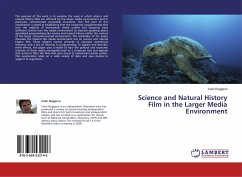The purpose of this work is to examine the ways in which science and natural history films are affected by the larger media environment and in particular, concentrated ownership structures. This first part of this examination is aimed at establishing that the corporate conglomerates that own the majority of mainstream media outlets and resources have sufficient control over the media environment to warrant speaking about specialized programming like science and natural history within the context of the larger corporate-owned environment. The remainder of the paper discusses the impacts this media environment has on science and natural history film. These impacts consist primarily of excessive commercial influence and a loss of diversity in programming. To explain and describe these effects, the paper uses a model of how the political and economic interests of these media monopolies lead to a corporate bias and agenda that serves to filter the films that gain access to mainstream media outlets. This examination relies on a wide variety of data and case studies to support its arguments.








